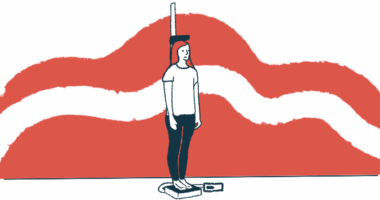People With PWS Show Impaired Recognition of Voices, Other Sounds, Study Finds

Individuals with Prader-Willi syndrome (PWS) have difficulty recognizing voices and other sounds, which may contribute to their problems with social interaction, a study found.
The study, “A Study of Voice and Non-Voice Processing in Prader-Willi Syndrome,” was published in the Orphanet Journal of Rare Diseases.
People with PWS usually have problems socializing with others. Social communication skills require the brain to process both faces and human voices. Those with PWS have difficulty recognizing facial expressions and social intent. However, little is known about how well they process voice and non-voice sounds.
Scientists at University of Toulouse Paul Sabatier in France recruited 61 individuals with PWS, with a mean age of 30. Thirty-eight had a deletion in chromosome 15, and 23 had maternal uniparental disomy (UPD). Thirty-eight typically developed adults were recruited as controls.
PWS is caused by the loss of function of genes in a specific region of chromosome 15. In about 60% of cases, a segment of the paternal chromosome 15 is deleted. Almost 35% of patients have UPD, which means that both chromosome 15 copies were inherited from the mother, instead of one copy from each parent.
Investigators assessed the study participants’ ability to distinguish between vocal and non-vocal sounds by asking them to sit in a quiet, dimly lit room looking at a fixation cross on a computer screen. The participants were instructed to press a left or right control button, depending on whether they heard a voice or non-voice sound such as a car, telephone, bell, or running water.
Compared with the controls, participants with PWS showed deficits in the recognition of voices and non-voices, with poorer hit rates and longer reaction times to the stimuli (about 50% longer in the PWS group). These deficits were particularly significant in those with UPD, especially in the recognition of non-voice sounds. Lower IQs among those in the PWS group was not associated with these patients’ lower hit rates, the researchers said.
The participants were also given a free-sorting task, which involved listening to 16 different sounds and placing them in groups using any criteria they chose.
Both groups — PWS patients and controls — divided the sounds into voices, musical instruments, and environmental sounds, though those with PWS grouped animal and environmental sounds together. Still, the results indicate that both groups used the same overall cognitive strategy in their decision-making processes, the researchers said.
The scientists then applied an advanced mathematical tool known as the hierarchical drift diffusion model (HDDM) to clearly differentiate sensorimotor deficits from cognitive deficits related to decision-making. HDDM allowed scientists to assess whether the long reaction times in people with PWS might be due to differences in their thinking.
“The HDDM enabled us to demonstrate that participants with PWS need to accumulate more information for decision-making, are slower at decision-making, and are less predisposed to voice perception than TD individuals,” the researchers said. The PWS group was also more predisposed to perceive voices than non-voices, though to a lesser extent than controls, they said.
“Sound categorization in participants with PWS is generally preserved, though impoverished, and may be influenced by their low IQ,” the researchers said.






